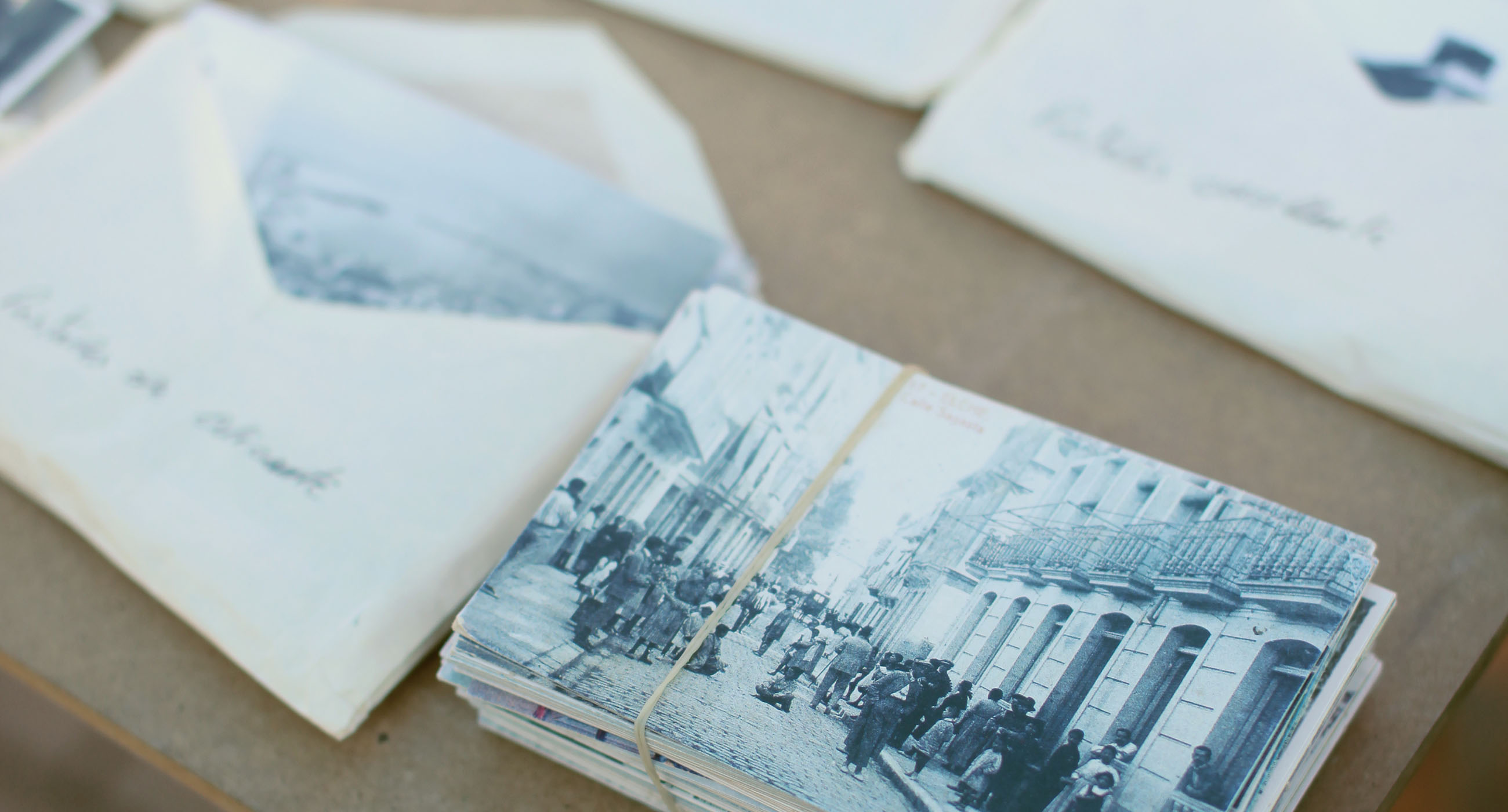The poem featured in today’s episode of The Writer’s Almanac on NPR is Finding a Box of Family Letters by Dana Gioia. It’s so lovely that, like many of the wonderful things which I find on the web and fear may one day disappear, I’ve decided to copy it here.
The dead say little in their letters
they haven’t said before.
We find no secrets, and yet
how different every sentence sounds
heard across the years.My father breaks my heart
simply by being so young and handsome.
He’s half my age, with jet-black hair.
Look at him in his navy uniform
grinning beside his dive-bomber.Come back, Dad! I want to shout.
He says he misses all of us
(though I haven’t yet been born).
He writes from places I never knew he saw,
and everyone he mentions now is dead.There is a large, long photograph
curled like a diploma—a banquet sixty years ago.
My parents sit uncomfortably
among tables of dark-suited strangers.
The mildewed paper reeks of regret.I wonder what song the band was playing,
just out of frame, as the photographer
arranged your smiles. A waltz? A foxtrot?
Get out there on the floor and dance!
You don’t have forever.What does it cost to send a postcard
to the underworld? I’ll buy
a penny stamp from World War II
and mail it downtown at the old post office
just as the courthouse clock strikes twelve.Surely the ghost of some postal worker
still makes his nightly rounds, his routine
too tedious for him to notice when it ended.
He works so slowly he moves back in time
carrying our dead letters to their lost addresses.It’s silly to get sentimental.
The dead have moved on. So should we.
But isn’t it equally simpleminded to miss
the special expertise of the departed
in clarifying our long-term plans?They never let us forget that the line
between them and us is only temporary.
Get out there and dance! the letters shout
adding, Love always. Can’t wait to get home!
And soon we will be. See you there.“Finding a Box of Family Letters” by Dana Gioia, from Pity the Beautiful

I know this, from experience: you sit on your dining room floor surrounded by black and white prints taken of your mother, her girlfriends, and young men in uniform, the latter of whom would die, many of them, within the next month or two or year or two, in one of countless horrible ways devised by war; and you read their letters, the ones that made it across the Atlantic, despite U-Boat attacks; or you pore over the scrapbook your grandmother kept from the year she turned 14, in 1899, until she died, in 1969, the birth, marriage and death announcements of everyone she knew, not always in order; or you sift gently through boxes of nineteen-teens, nineteen-twenties, and nineteen-thirties photographs of the farm folk who lived in the houses all around where you live now, and … you stop reading and look up, startled to find that you have electric power, and indoor plumbing, and the cars on the road beyond your window are not Model-Ts, and the woman outside her house up the hill is not Phamie Brooks (dead since 1936) in her long house dress, but Christy Baker in jeans. I’ve talked with the ladies at the Susquehanna County Historical Society and I find this is a very real phenomenon. When you sink into history, sometimes it is very hard to climb back into the present.